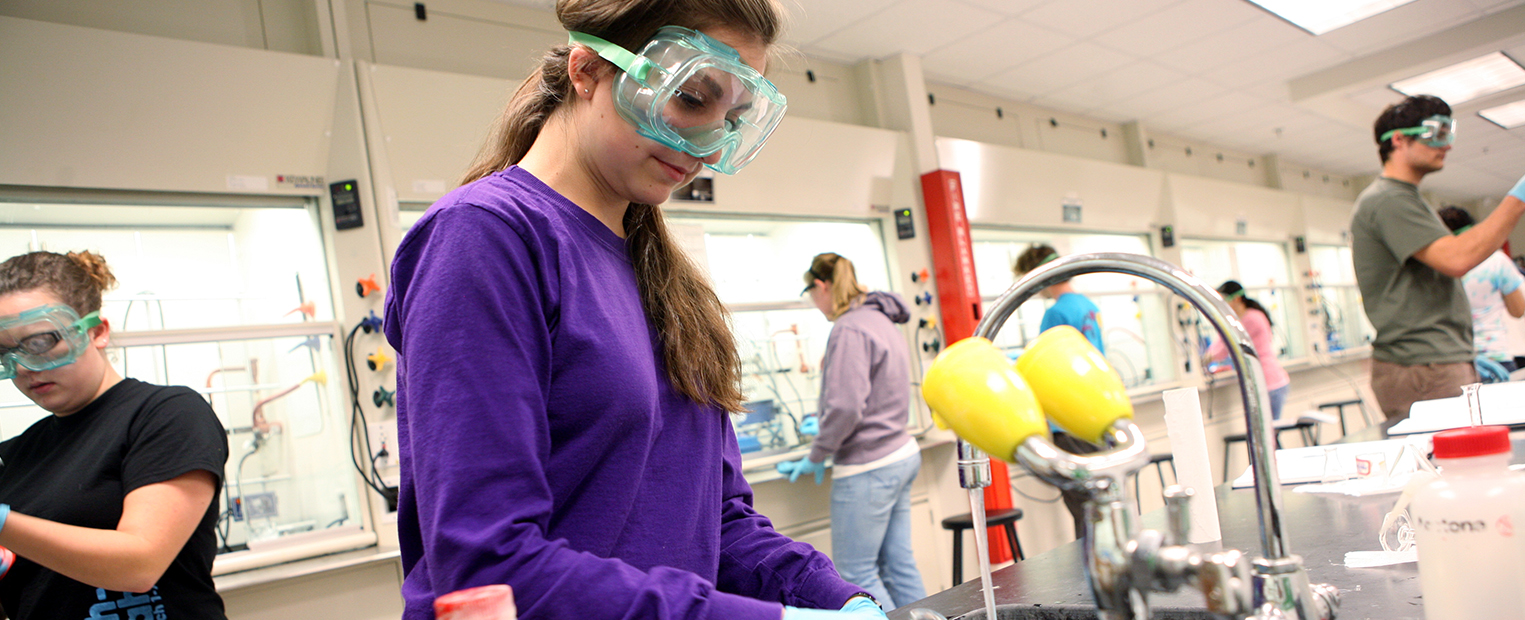TCU’s organic laboratory course “Organic Qualitative Analysis,” a department capstone lab, might very well be renamed “Chemistry Detectives.” This is a fun twist on discovering and identifying unknown chemical compounds using deduction and reasoning. Organic Qualitative Analysis is a course that teaches students how to identify organic molecules by running chemical tests and interpreting the data from various analytical instruments. The students become diagnosticians working in ways similar to what detectives do by gathering information and using context clues to create a list of possibilities and ultimately to solve the mystery.
David Minter, professor of Chemistry at TCU, has been teaching this class since 1980. As an undergraduate, he took the course as an advanced elective for seniors. “While most organized laboratory courses are good for teaching techniques and how to follow procedures, they do not provide training in analyzing data and other skills that are required for advanced work in chemistry. Organic Qualitative Analysis affords precisely that opportunity and gives students a realistic taste of what they need to know for the future. This is likely the motive for changing the makeup of our organic laboratory curriculum many years ago to include such a class,” he says. Minter is firmly convinced that this course teaches essential problem-solving skills and believes that all universities should offer a similar opportunity for chemistry and biochemistry majors.
TCU is one of the very few universities that offer Organic Qualitative Analysis. The majority of students who take this course and its prerequisites are pre-health professional students at TCU. Minter says, “The process of identifying an unknown molecule is exactly the same as diagnosing a disease. Medical tests are used to narrow the possibilities to a reasonable number and then specific tests are run to make the final determination or diagnosis. The procedures for identifying a molecule are totally parallel.”
Learn more about TCU’s Department of Chemistry & Biochemistry.
